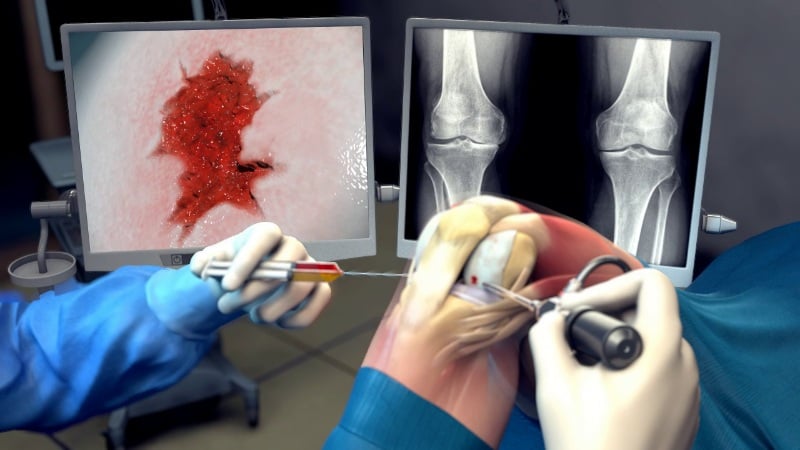Scientists from the Netherlands have received a €600,000 grant to test a treatment for osteoarthritis in humans that combines hydrogels and stem cells to help the knee joint heal.
In osteoarthritis, the cartilage in joints such as the knees breaks down, causing stiffness and pain. There is no cure at the moment, and most current treatment options are limited to relieving pain and other symptoms, without addressing the underlying cause.
A research group at the University of Twente, the Netherlands, has devised a potential treatment based on tissue engineering. The group aims to inject hydrogels into the joint to help to stabilize it and stop it from deteriorating. The hydrogels are also able to encourage new cartilage cells to grow and mend the joint.
“It is simple, it is applied in a minimally invasive procedure, induces restoration of the damaged joint surface and is relatively cheap compared to currently used alternatives like cell therapy,” Marcel Karperien, the scientist leading the research, told me.
For some situations, the group is also planning to add stem cells to the hydrogels, which could accelerate the healing process. “This might be particularly relevant when we want to treat larger cartilage defects of more than two square centimeters,” Karperien noted. “For smaller defects we don’t need cells — the body can do the healing itself facilitated by the injected hydrogel.”

Having tested the treatment on horses in the past, the group now has a prototype ready for a trial in ten patients. The €600,000 grant, coming from the nonprofit organization ReumaNederland, will help fund this trial, which is expected to commence within two years.
It is difficult to succeed when developing medical applications of tissue engineering due to the complexity of selecting the right types of hydrogels, stem cells and chemicals to encourage tissue growth. However, Karperien, who created a spinout company based on the hydrogel treatment for osteoarthritis, believes that investor interest in the field is increasing. “The market potential is huge, with more than 100 million patients in dire need for treatment,” he told me.
The race to find a cure for osteoarthritis could get big returns for the winner. Current contenders for the top prize include the Swedish company Medivir, which is developing a drug that could prevent the destruction of cartilage by blocking a key protein in the destruction process. Companies such as GeneQuine are coming up with gene therapy treatments that promote the expression of anti-inflammatory molecules long-term, which could slow down the loss of cartilage at the joints.
Images from Shutterstock and University of Twente





